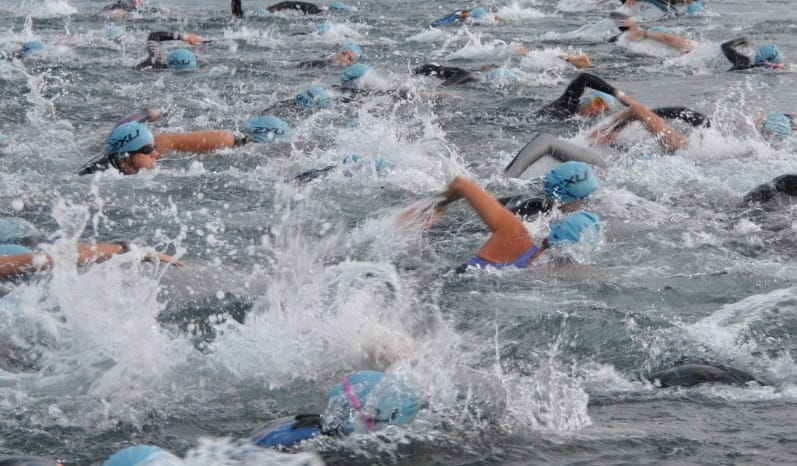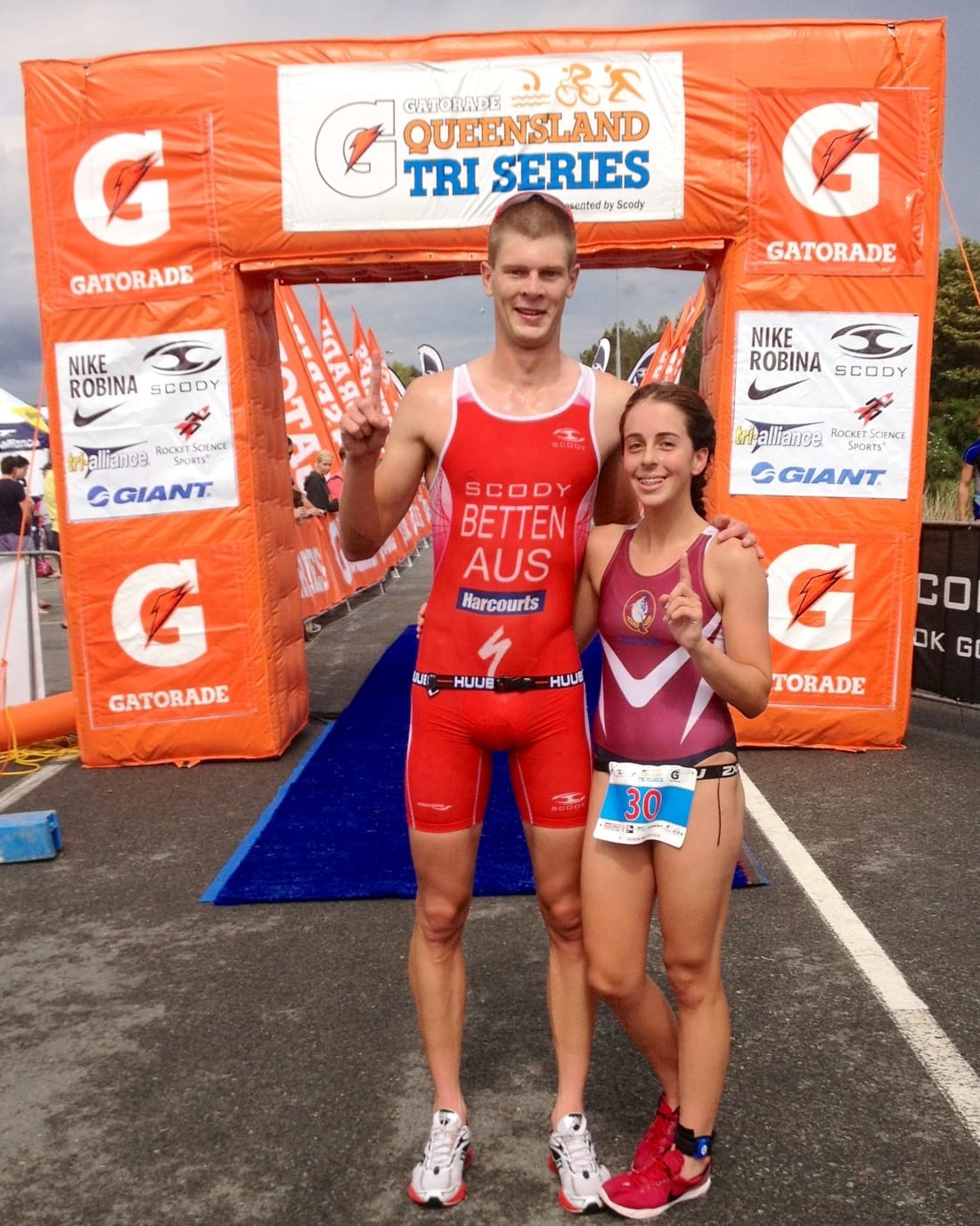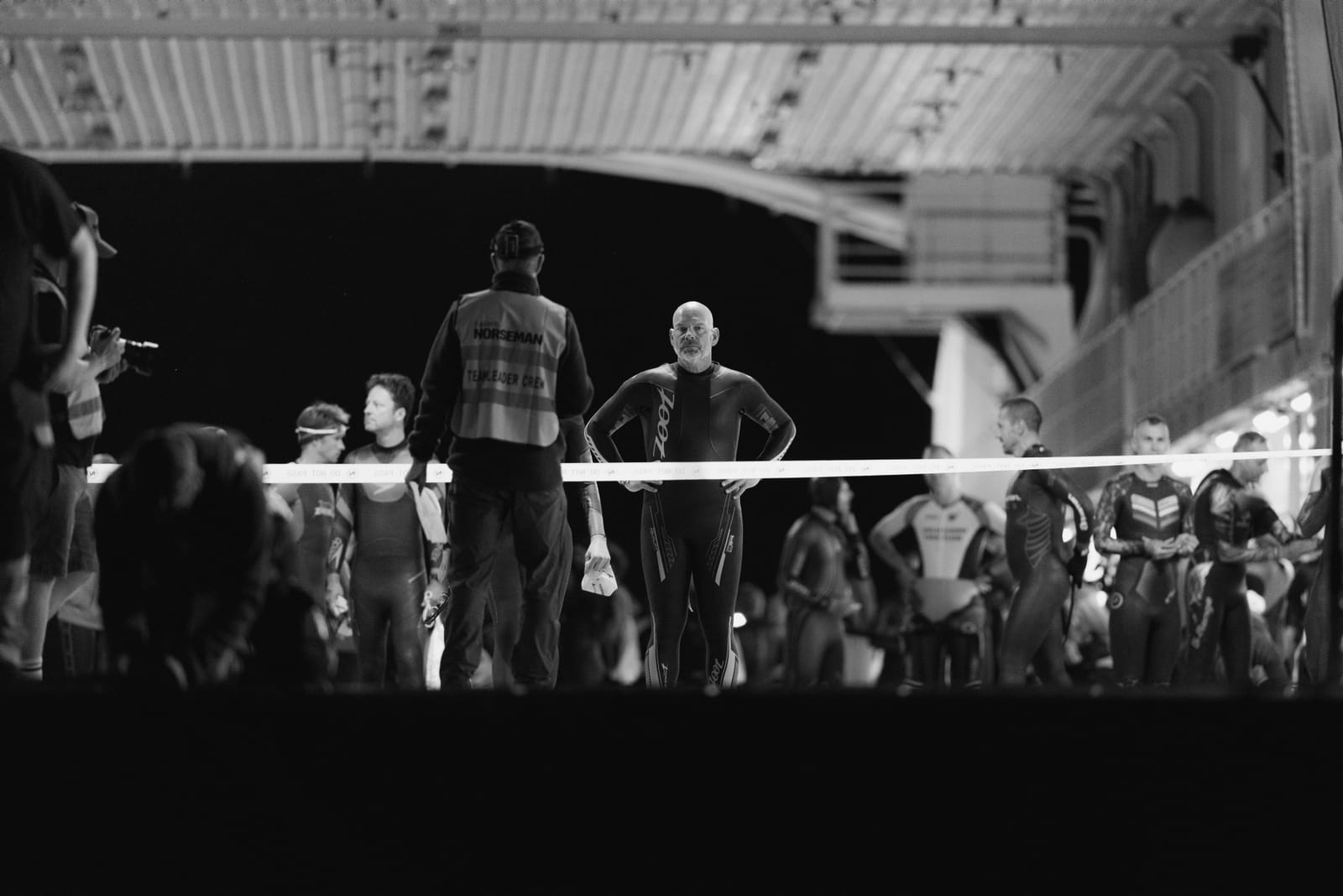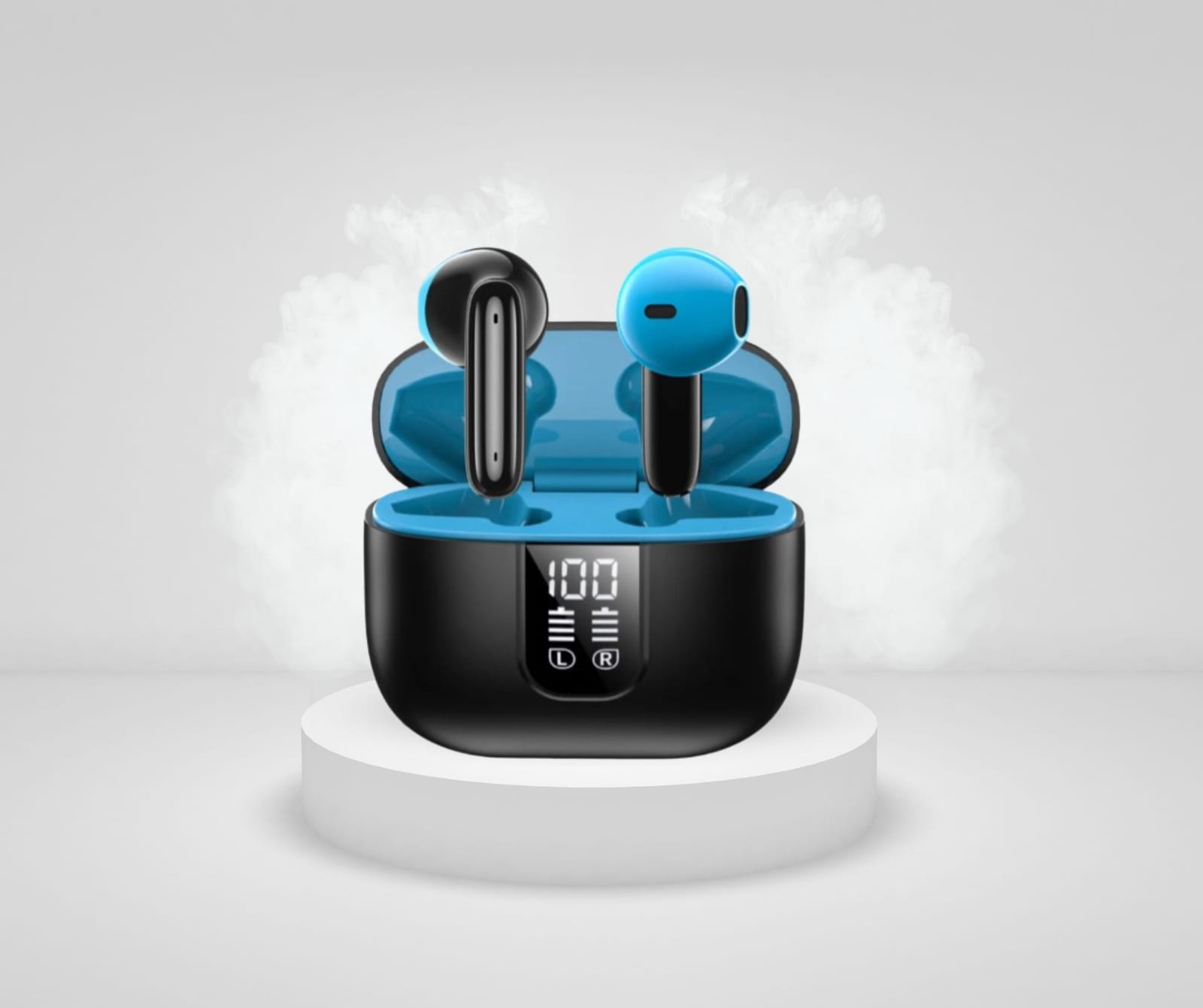Open water swimming is the number one thing people are afraid of when it comes to race day. Whether it is the deep water, getting hit or kicked, large fish, swallowing water or just the unknown, open water swimming is one thing that creates anxiety like no other element of triathlon.
An athlete can lose many minutes during a race and use huge amounts of anxious energy if they don’t have control of this element of race day.
I have spent many hours with people trying to overcome their fears and maximise their performance, not only with beginner triathletes, but also very experienced ones, who still struggle with this part of their race.
The number one piece of advice that helps more than any other (and can be applied to the rest of the race also) is staying Intrinsic with their thoughts rather than Extrinsic.
A few good examples of thought patterns in Open Water Swimming are:
Extrinsic: What if I get kicked, I wonder what is under the water, how long is this swim taking, where are other athletes etc.
Intrinsic: what do I need to do NOW to make this swim better, thinking about staying on someone’s feet to draft, thinking of sighting well to stay on course, holding technique, observing where waves are coming from and so on.
When the athlete is staying Intrinsic with their thoughts patterns, they are much more likely to keep have a better swim, as they are focusing on the elements or the processes that make a difference to performance. However, when the athlete drifts onto the things they can’t control, it typically raises anxiety levels and shifts focus away from these key processes.
Like most things, perfecting this skill requires practice. It also requires the athlete to be very self aware of their thoughts. This then empowers them to make changes when these extrinsic thoughts come in, as they invariably will from time to time, even in the most experienced athlete.
So next time you swim, make sure you are aware of what you are thinking about, not just when you are in the water, but also prior to the swim. Identify what are the few things that you need to keep thinking about while you are swimming that will make a difference to your performance. This will go a long way to keeping anxiety low and also maximising your open water ability!
And remember, Swim Smart, Race Fast!







